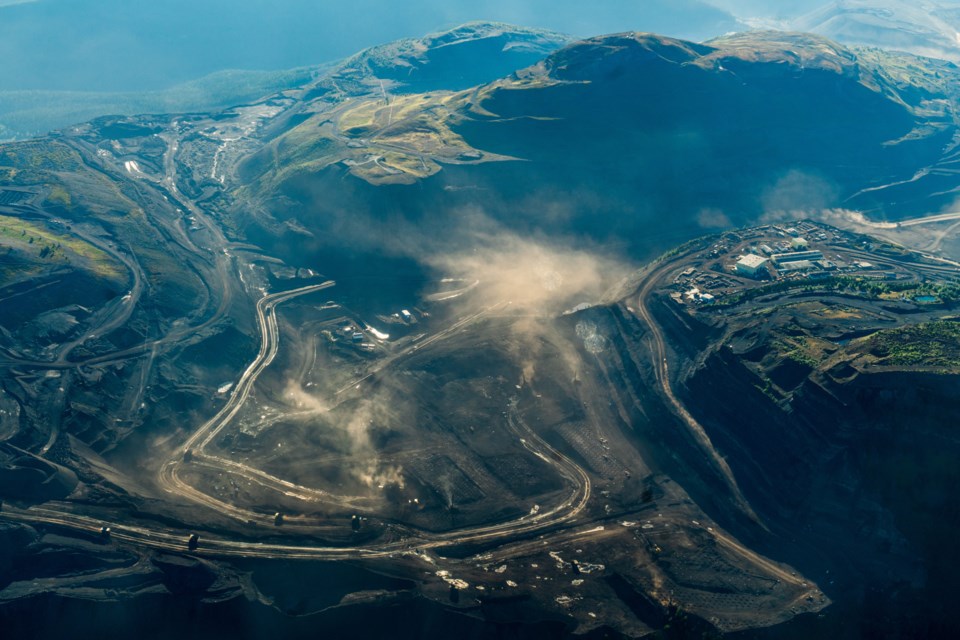One of the biggest B.C. business news stories of 2024 was the announcement Teck Resources (TSX:TECK.B, NYSE:TEK), B.C.’s biggest miner and Canada’s only diversified mining major, will sell its most profitable assets – its B.C. coal mines – to an even bigger diversified mining major: Switzerland’s Glencore plc (LSE:GLEN).
For $9 billion, Glencore will acquire a 77 per cent interest in Teck’s four steelmaking coal mines in B.C., collectively called Elk Valley Resources (EVR), with Nippon Steel and South Korea’s POSCO owning the balance in a deal totalling $12 billion. EVR will also own 46 per cent of Neptune Terminals in North Vancouver.
Having already divested itself of oil, Teck’s climate penance will be nearly complete, once it has also divested itself of its coal mines. Teck’s sustainability strategy aims to reduce the company’s carbon intensity by 33 per cent by 2030, and divesting itself of carbon-heavy assets could move Teck closer to that goal much quicker.
Provided the Canadian government doesn’t block it – and there seems to be little reason to believe it will – it will leave Teck a smaller metals pureplay company.
“This is an end of an era, but it’s the beginning of a new one as well for British Columbia and Canadian mining,” said Michael Goehring, CEO for the Mining Association of BC. “A well-capitalized Teck Resources has very strong critical mineral assets and they intend to grow and build on those assets.”
Those assets include copper mines in Chile, Peru and B.C., and a zinc mine in Alaska. Teck owns the Highland Valley copper mine in B.C., and 50 per cent of the development project, Galore Creek. It also owns a lead and zinc smelter in Trail, B.C.
“As a pure-play base metals company, Teck expects to drive new economic opportunities and job creation as it increases production across the base metals portfolio, including the HVC2040 project to extend the life of Highland Valley Copper… and the Galore Creek project in B.C.,” Teck said when announcing the sale. “Teck is also evaluating an expansion of Trail operations to include an electric vehicle battery recycling facility.”
Teck’s history stretches back more than a century to 1913 and Teck-Hughes. The company grew into a large diversified mining company with copper, zinc, smelting, metallurgical coal and oil operations. But last year, Teck divested itself from oil, selling its 21 per cent stake in the Fort Hills oil sands project, and had earlier abandoned its $20-billion Frontier oil sands project.
While Teck’s divestment from oil could be justified by low oil prices at the time, the same can’t be said of metallurgical coal, which is quite profitable.
Teck’s steelmaking coal mines in the Elk Valley of B.C. are its most valuable assets, accounting for 60 per cent of its gross profits. According to Teck’s third quarter 2023 financials, gross profits from metallurgical coal was $2.9 billion in the first nine months of 2023, compared with $$631 million for copper and $329 million for zinc.
The decision to divest its most profitable assets can really only be understood through the prism of ESG (environmental, social and governance).
“This deal is not about Teck unloading a bad asset; it is about removing the ESG noose around its neck,” Heather Exner-Pirot, director of energy and natural resources at the Macdonald Laurier Institute, recently wrote in the Globe and Mail. “That’s poor justification for letting such vital assets end up in foreign hands.”
Paradoxically, Teck is hoping to increase its value by selling its most valuable assets.
“It’s the valuation,” Exner-Pirot told BIV. “It’s not the profits – it’s the valuation of the stock. And it is weighed down because it has coal assets, frankly.”
Though they may be a money maker, Teck’s steelmaking coal mines in B.C. have been an environmental liability. In addition to their carbon intensity, Teck’s coal mines have a legacy pollution problem.
Despite having spent more than $1 billion in water technology to try to reduce selenium levels in the waters of the Elk Valley, Teck has been fined by federal and provincial governments to the tune of $76 million over the last three years for polluting waterways in the Elk Valley.
In the long-run, Teck’s transition to a base metals pureplay may work out well for the company, since the long-term prospects for energy transition metals like copper are bright.
“They think they’re getting a good price for this asset,” Exner-Pirot said. “It is a ton of cash, and they are good at building copper mines, and that is a rare and important skill these days. So I’m not even sure it’s a terrible idea for Teck.”
Post-sale, Teck will remain a Vancouver-based company, with copper mines in Chile, Peru and B.C., and Glencore will open a headquarters in Vancouver for the management of the B.C. coal mines.
But it appears Glencore’s plan is to eventually get out of the coal business as well. Glencore has stated its strategy in buying Teck’s steelmaking coal mines is to bundle them in with their existing thermal coal mines, and then spin the whole coal business off into a separate company “within two years of the deal’s closing.”
B.C.’s steelmaking coal mines could change hands yet again in a few years.






